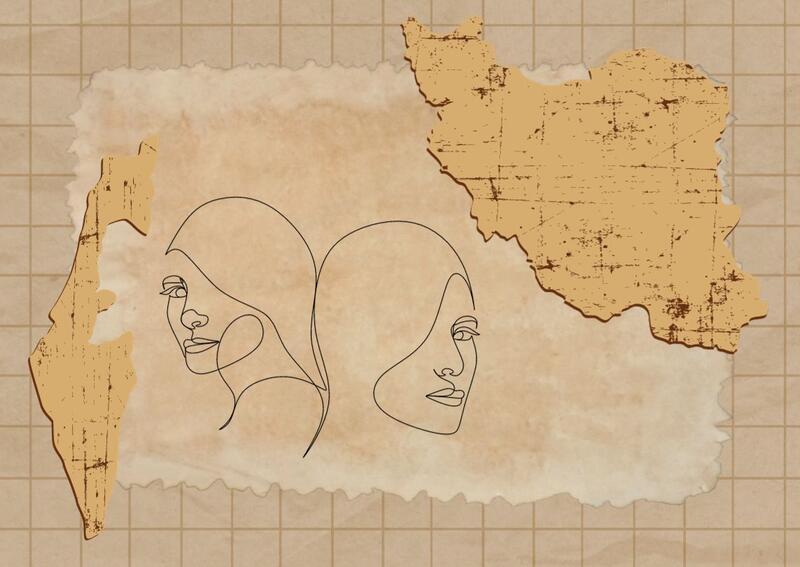For Iranian Women Who Break the Laws About Their Dress
In September of 2022, Mahsa Amini, a 22-year-old Iranian woman, died while in the custody of Iran’s morality police. She was arrested for wearing her hijab too loosely and exposing just a few strands of her hair. Though the police claimed she died of natural causes, witnesses saw her brutally beaten after she refused to tuck in the few pieces of hair that were not covered. Amini’s tragic death sparked a period of protests in Iran. Thousands of women took to the streets and removed their hijabs, demanding additional freedoms for Iranian women. In doing so, they risked imprisonment or even being killed themselves.
Unlike other recent protests in Iran—the 2019 against the rise in gas prices, for example—the protests inspired by Mahsa Amini brought women to the front and center of Iranian politics. They were protesting the Islamic Republic’s laws that turned a personal decision of wearing a hijab into political subjugation. The slogan of their protest was “Women, Life, Freedom,” which highlighted the fact that women lack any semblance of freedom or free will in Iran. Women protested on the streets while screaming “Death to the Dictator,” rejecting the Supreme Leader of Iran, Ayatollah Ali Khamenei. This wasn’t the first time Iranian women took to the streets to protest the law that forced them to wear hijabs. After the 1979 Revolution, the Iranian government imposed a law that required all women to wear black hijabs. Women were treated like second-class citizens, forced into marriages and prohibited from divorcing even abusive husbands in most circumstances, and deprived of other basic rights. Women who opposed these laws were met with violence. Despite this, some women refused to wear the chador and continued to push boundaries. In the 1990s, women began wearing more form fitting manteaus and head scarfs so their hair would be more visible. In the early 2000s, forty-nine percent of Iranians believed that wearing a hijab should be a personal choice.
In 2018, the Parliamentary Research Center, an advisory board to the Iranian Parliament, wanted to revise the law requiring a hijab, but the Parliament refused. After the death of Mahsa Amini, the Iranian government ceased deploying the morality police due to concern that it would trigger increased protests. However, as the protests have lost their fire, the morality police are in full force again. In the summer of 2023, the government proposed a bill to increase the punishment for women who break the laws about their dress. The bill has since passed on a trial basis for three to five years. Women already faced fines, arrests, and imprisonment, but under the “Chastity and Hijab” Bill these punishments have been made even more severe. The bill increased penalties, fines, banking restrictions, vehicle confiscations, and travel limits. Even with these additional restrictions, there are some extremists who say this law is not intense enough. After the trial period, the law will likely become permanent.
Amid the 2022 protests in Iran, some Israeli women have been exhibiting their solidarity with Iranian women. Fleur Hassan-Nahoum, Jerusalem’s deputy mayor, organized a protest in support of Iranian women. Hundreds of Israeli women at the protest cut off their hair and chanted “Women, Freedom, Life” in Farsi. “Almost every capital city in every Western free democracy was coming out to protest in solidarity with the women of Iran that are getting killed on the street for asking for basic rights. I thought to myself, ‘Why aren't we doing something?’” said Hassan-Nahoum. “We've never had anything against the Iranian people and the Iranian people have never had anything against us. It's only the very cruel leadership and autocracy that they have there.”
The Israeli government has also released a video titled “Israeli women stand with Iranian women” that shows Israeli women of all ages and backgrounds giving their support to Iranian women. In the video, Israeli women say things like: “We support Iranian women. Israel loves you. The women of Israel will always be by your side. You will always be remembered. Mahsa. All women deserve to live free. You are in our hearts.” This demonstrates that despite differences across government lines, Israelis do not view Iranians as enemies but rather stand in unity with them.
In the midst of war in Israel, the Iranian government has been trying to get their citizens to renounce the Israeli government and support Hamas. They have been hanging Hamas flags on trees and painting Israeli flags on the ground so that Iranians will step on them. However, according to Iran International, there have been reports of a few brave Iranian citizens burning Hamas flags, and walking around the Israeli flag painted on the ground so as not to disrespect it. These acts of solidarity mean a lot, especially considering that Iranians do not have the same democratic freedom of protest as Israeli women and therefore cannot show unity in the same way. Could the solidarity that Iranians have shown towards Israelis and that Israeli women have shown towards Iranian women be the beginning of peace between the two nations?
As an American-Jewish woman who has a luxury of enjoying so many freedoms and opportunities, I have an obligation to highlight the plight of other women who weren’t fortunate enough to be born with the freedoms that I have. The fact that Israeli women, with whom I identify as I am an Israeli citizen, can have compassion for women who live in a country that calls for Israel’s destruction suggests that the work of women might help bridge peace. That gives me hope for our future.
This piece was written as part of JWA’s Rising Voices Fellowship.







